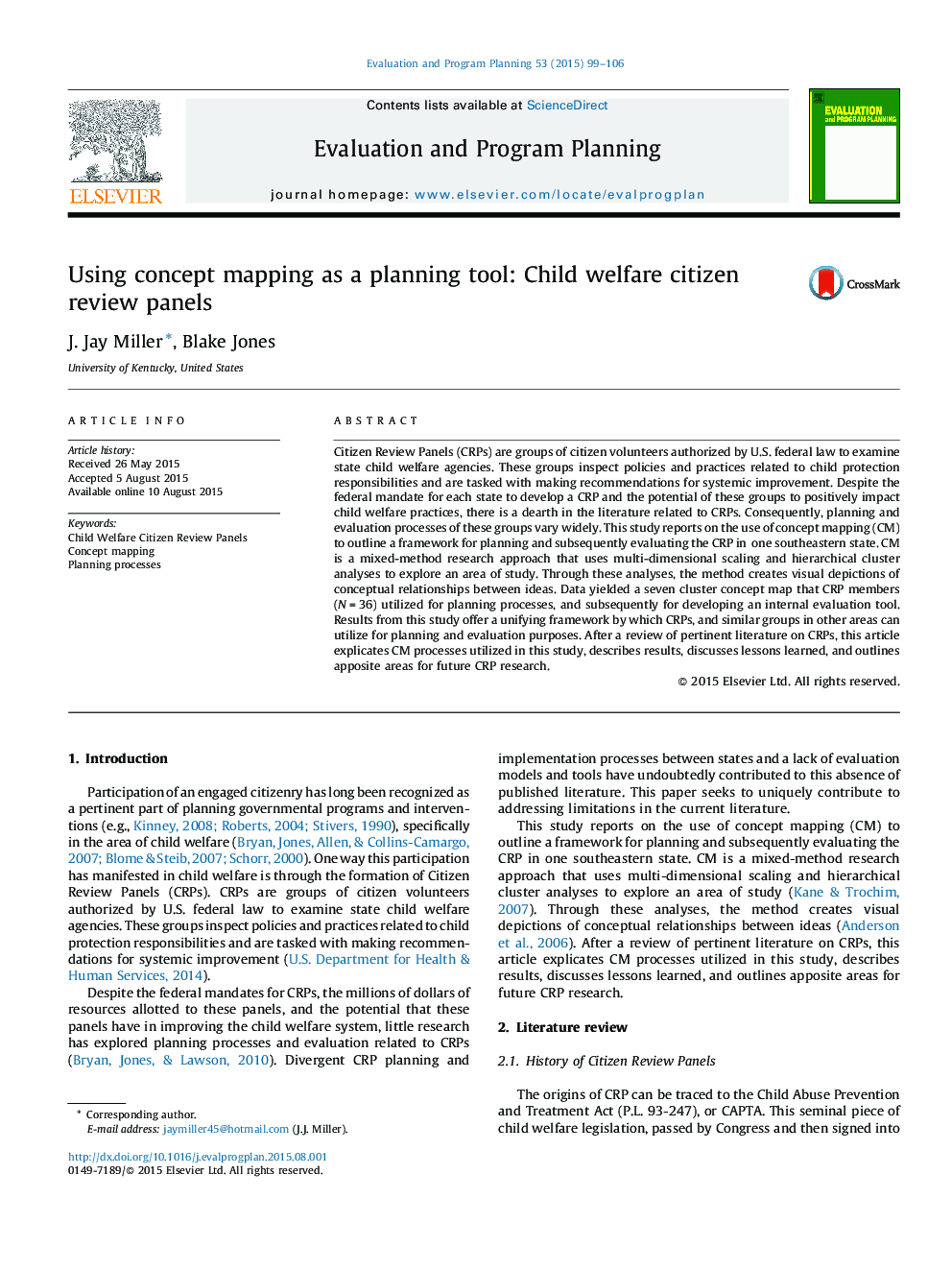| Article ID | Journal | Published Year | Pages | File Type |
|---|---|---|---|---|
| 6793052 | Evaluation and Program Planning | 2015 | 8 Pages |
Abstract
Citizen Review Panels (CRPs) are groups of citizen volunteers authorized by U.S. federal law to examine state child welfare agencies. These groups inspect policies and practices related to child protection responsibilities and are tasked with making recommendations for systemic improvement. Despite the federal mandate for each state to develop a CRP and the potential of these groups to positively impact child welfare practices, there is a dearth in the literature related to CRPs. Consequently, planning and evaluation processes of these groups vary widely. This study reports on the use of concept mapping (CM) to outline a framework for planning and subsequently evaluating the CRP in one southeastern state. CM is a mixed-method research approach that uses multi-dimensional scaling and hierarchical cluster analyses to explore an area of study. Through these analyses, the method creates visual depictions of conceptual relationships between ideas. Data yielded a seven cluster concept map that CRP members (NÂ =Â 36) utilized for planning processes, and subsequently for developing an internal evaluation tool. Results from this study offer a unifying framework by which CRPs, and similar groups in other areas can utilize for planning and evaluation purposes. After a review of pertinent literature on CRPs, this article explicates CM processes utilized in this study, describes results, discusses lessons learned, and outlines apposite areas for future CRP research.
Keywords
Related Topics
Health Sciences
Medicine and Dentistry
Public Health and Health Policy
Authors
J. Jay Miller, Blake Jones,
